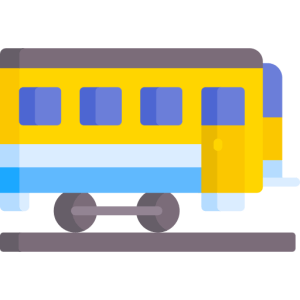
Reports and results
Stage 1:
Te Mānatu Waka Ministry of Transport was considering how the transport revenue system needs to change to meet future needs. These changes could have a significant impact on future generations. With Koi Tū: The Centre for Informed Futures, the Ministry has used an innovative approach to engaging stakeholders and the public on these complex issues. Click here to read about the innovative online platform used to understand how kiwis feel about the transport revenue system:
https://informedfutures.org/the-future-of-transport-in-aotearoa-new-zealand-who-should-pay-for-what/
Stage 2:
This report presents an analysis of a set of deliberative workshops that brought together broadly representative groups (minipublics) to understnad what people want from the future of the transport revenue system, as well as what is fair:
This project was a collaboration with Te Manatū Waka Ministry of Transport and concluded in April 2023
The page has been frozen below to show what the participants were able to access
How should we fund the transport system in the future?
A good transport system allows people and goods to move efficiently and safely, to connect to friends and whānau, and to access job opportunities, education and recreation.
The way we pay for the transport system has functioned well for decades, but it is time to reconsider how it works in the longer-term, because the way New Zealanders travel is changing.
Koi Tū: The Centre for Informed Futures and Te Manatū Waka Ministry of Transport are working together to see what people think about the question ‘who pays for what?’ in the future land transport system.
We have completed stage 1 of this project which was an interactive Pol.is conversation. You can view the outcomes here.
In stage 2 we ran a set of deliberative workshops, where a select group of citizens joined the conversation in person, learned more about the issues and shared their perspectives.

Are you interested in what New Zealand’s land transport system should look like in the future?
What do you think might be a fair way to fund it?
We are planning the next stage of this project.
If you would like to be involved please leave your email address by clicking the register button above, and we will keep you updated.
A future land transport system might include low-emission vehicles, improved public transport, more walking and cycling. It could make sure that the young, the elderly and disabled aren’t disadvantaged and can easily access the places and things they need.
Changes to the transport system could be driven by a range of things like advances in technology (e.g. vehicle automation and electrification), the need to reduce carbon emissions, and a desire for more liveable and sustainable cities.
What does land transport include?
 Cars
Cars Motorbikes
Motorbikes Trucks
Trucks Buses
Buses Trains
Trains Walking
Walking Cycling
Cycling Roads, paths
Roads, paths
and tracks

Need to know more?
View background information for this project and learn about different funding perspectives >>>
Questions to think about:
- How will we pay to maintain and improve the transport network if road vehicles travel less and less revenue is collected from FED and RUC?
- How should the transport system balance the promotion of well-being, safety, access and connectivity, along side environmental and economic outcomes?
- How should we pay for the major investments needed to transition to a lower emissions transport system (e.g., EV charging infrastructure, more public transport, bike lanes)?
- How should we pay for the range of transport options needed in our towns and cities so that people have more choices about how and when they travel? How should we pay for a transport system that is more vulnerable to shocks like extreme weather events?
- How do we ensure that we are meeting the needs of all who use our transport system – including businesses, people who live in smaller towns and rural areas, people who are on lower incomes, or people with disabilities?
- Should we make more use of pricing tools (e.g., tolls, congestion and pollution charges) to encourage people and companies to make different travel choices?
- If we are encouraging more use of public transport, walking and cycling, what should those users pay towards its upkeep? As newer transport forms become more available, eg e-bikes, scooters, should these make a contribution?
- How should other costs that vehicles impose on the system (such as congestion and pollution, and vehicles’ use of scarce land) be accounted for? Should these ‘externalities’ be something that drivers should pay for?
- How should the benefits and costs or new transport infrastructure be shared across society?
Future transport perspectives – what do you think?
Click to read more about these perspectives

